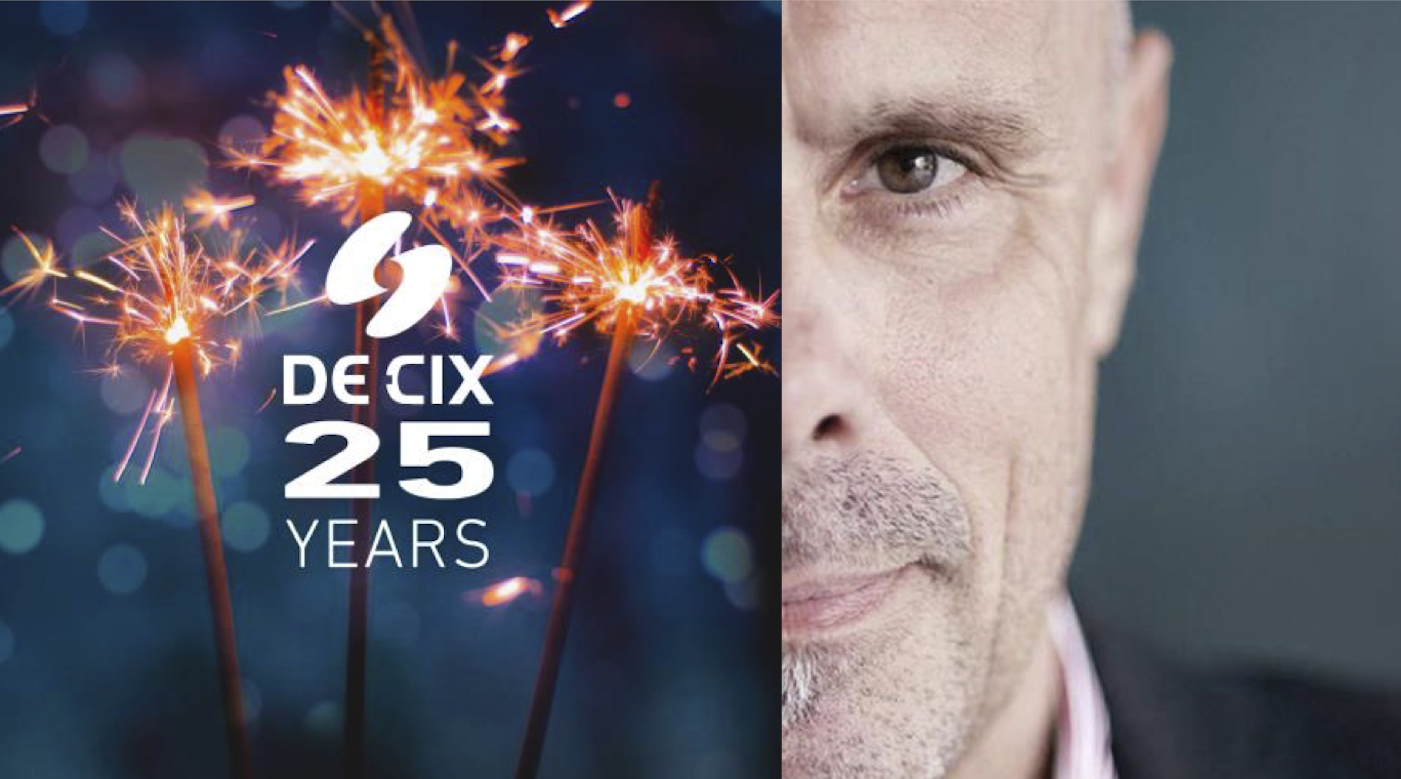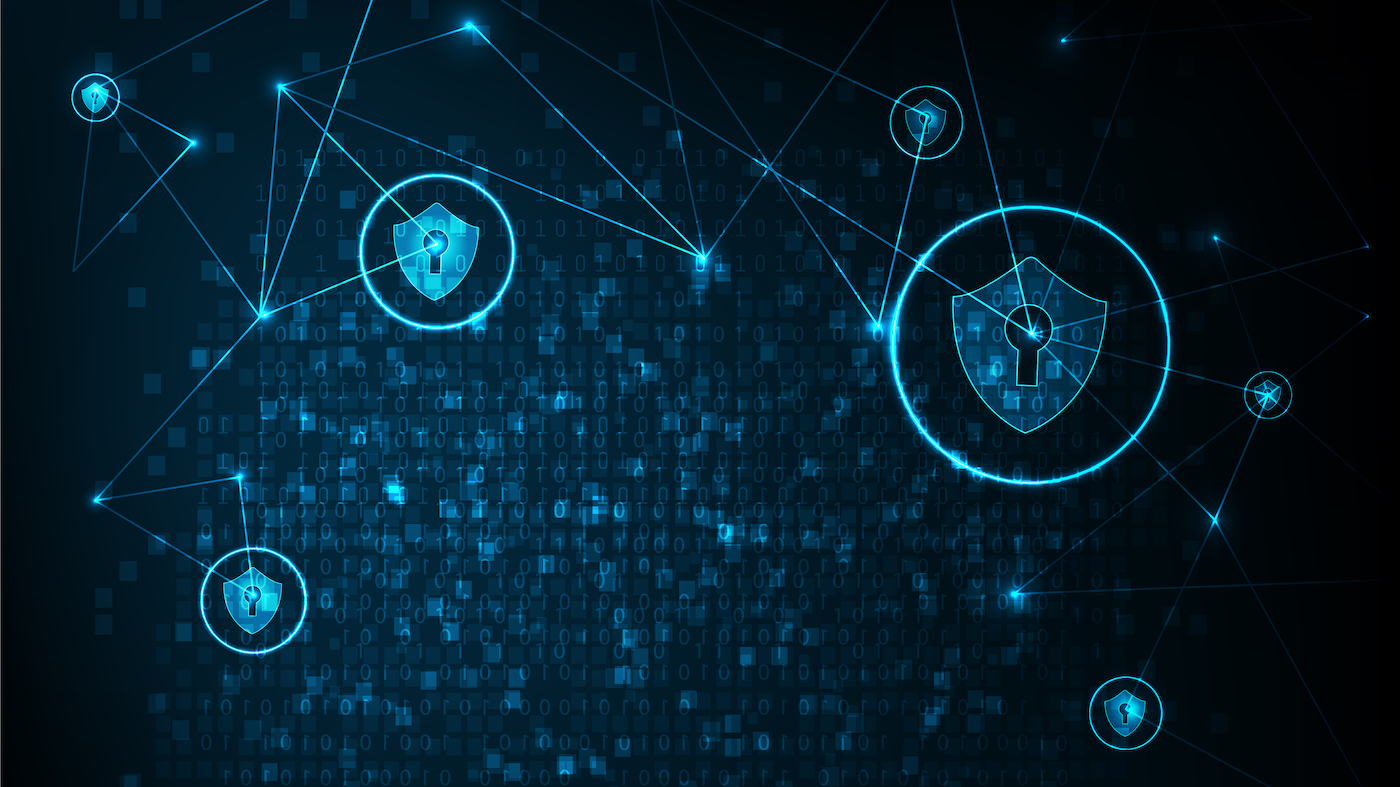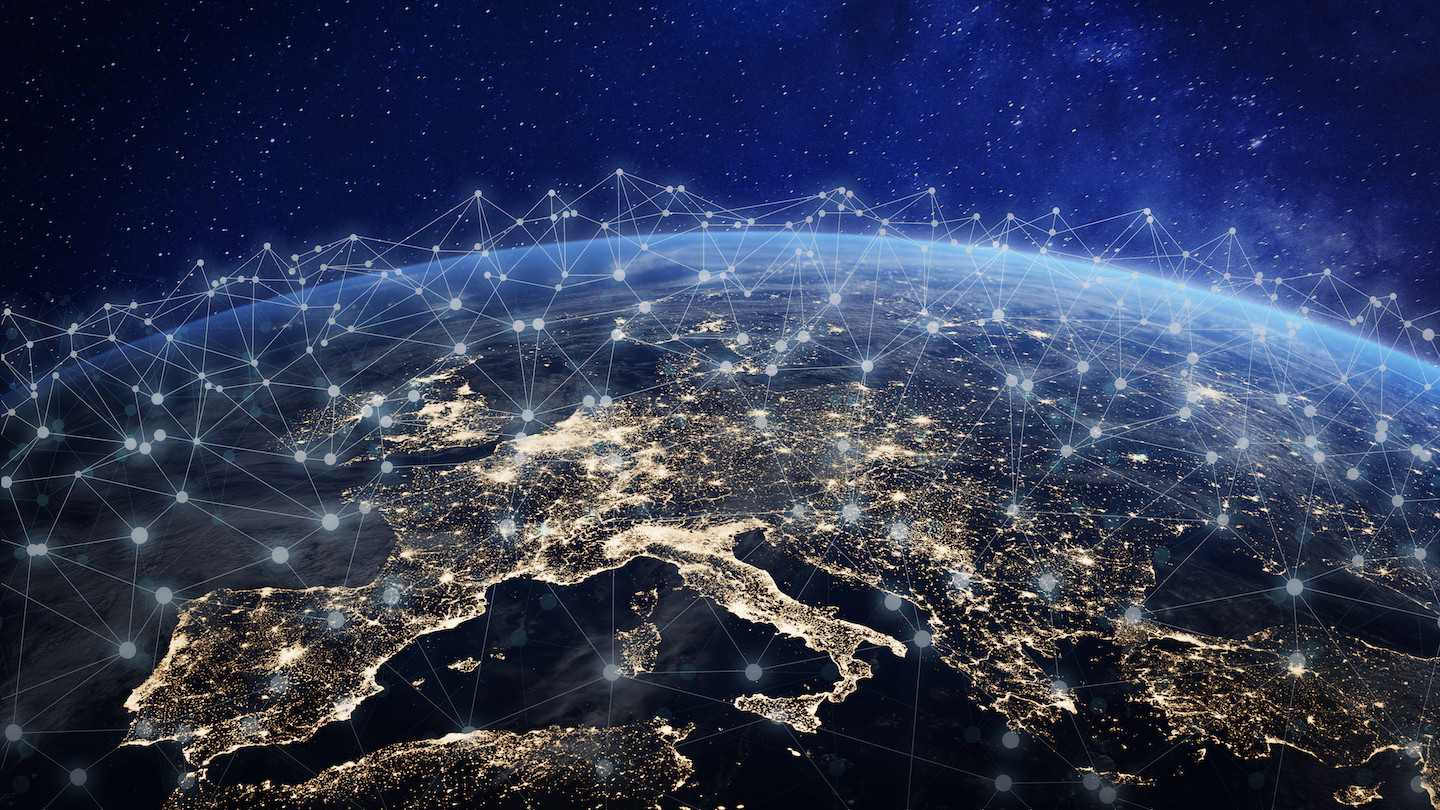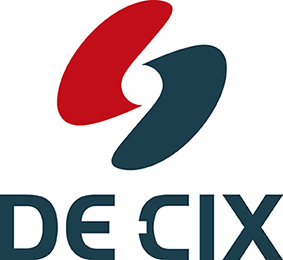Shaping our Digital Future – Why We Should Invite Ourselves to the Party
CEO of eco and DE-CIX, Harald A. Summa offers a vision of how we can work together with transparency, openness, and cooperation to create a digital future beneficial for everyone.

© Andrey Suslov | istockphoto.com
Our joint digital home
My physical home is Cologne, but my real home is the digital world. That makes me biased, like anyone who is supposed to give information about their homeland. Just as parents find it difficult to speak objectively about their children, I find it difficult with the Internet. My digital home – our joint digital home – is too close to my heart.
Not only am I biased, but I may also at times be naïve. In 1995, we started to bring the Internet to Germany. We founded eco – Association of the Internet Industry, an association to promote the commercial use of the Internet. But – I’m bashful enough to admit – I didn’t have much of an idea about the infrastructure involved. I didn’t have a plan either. I didn’t even know what an Internet Exchange was. How could I have? The digital infrastructure that we take for granted today had yet to be developed. More specifically: We needed to develop it. At the outset, we had nothing.
In the beginning was the Word, so the creation story goes, but we didn’t even have that. We ourselves had to come up with names for the things that we built. We gave one of our “babies” the beautiful name: the German Commercial Internet Exchange, DE-CIX (pronounced “DEE-KIX”) for short.
It was a steep learning curve. Back then in Frankfurt, we talked a lot about the Internet. We thought a lot about where all this would lead. To be honest, we hardly talked about anything else. We thought we had quite a good overview, and – which is perhaps why I remember the time so vividly – the mood was extremely positive. But as much as I try, I cannot remember an occasion when any of us considered the possibility that “our baby” could one day become the most important data hub in the world. No one had that on their radar. Or any idea of what resourceful people would one day do with this data. That even the most utopian of visions – all the knowledge in the world, available everywhere in the world, for every person – would be as self-evident as electricity from the socket. Or that our little Internet business would – at first gradually, but over time faster and faster – involve every conceivable sector of our economy, where (in contrast to what we were doing back then) real products with a real use would, in symbiotic relationships, be produced and traded for real money. That if one of us were to think of pulling the plug on our shop, the whole country would be brought to its knees.
Yes, we were naïve – and that was probably just as well. Because if I hadn’t been, the sheer responsibility of it all might have taken a bit of the fun out of it.
Digital infrastructure – crucial for sustaining society in a crisis
The Internet and the digital infrastructure that enable global data flows and digital ecosystems are important. More than that, they are crucial for sustaining society, the economy, and private life. Our digital infrastructure, as can be read everywhere since the Covid-19 crisis, is critical infrastructure. This means that our operations should be maintained even in the event of a crisis. This is a task for which we are well prepared, because business continuity and preparation for the unforeseen is a central part of the business model for us and our partners: There is no industry, and no family that has not been affected by the crisis, but the Internet has just kept on running. Stably, reliably, inconspicuously.
Digitalization is the basis for a good future. Today, I no longer have to convince anyone of this fact. Despite an atmosphere of polarization around the world at the moment, there is a remarkable level of consensus on this point. However, just because we think something is important does not mean that we are doing it right – or even that we agree on what “right” means. Added to this, technological progress is now so rapid that not only is politics (which should be responsible for providing guard rails to development) looking increasingly sluggish, but civil society is also struggling to adapt to new realities. To be honest, even some of those who are responsible for driving progress are finding the pace of development daring. Which leads us to the question: Who is capable of shaping our digital future in a meaningful way?
Security – important, but not an end in itself
German industry, with its successes in engineering, faces a particularly difficult task. Traditionally, we do not regard the qualitatively flawless product as a theoretically achievable distant goal, but as a minimum. No entry into the market without a fully developed product – that is the thoroughly sound and responsible maxim. And in the worldwide competition, this encounters ideas such as “Done is better than perfect”, “Ship it, then fix it”, and the “Minimum Viable Product” – the product that is not fully developed, but is just barely viable, and which inevitably conjures up in my mind’s eye images of a premature baby lying in an incubator.
Perhaps with the exception of Switzerland, I can’t think of any country where the need for security is as pronounced as in Germany. In the context of the Internet, people often talk about data minimization, but the value of data does not lie in the fact that it is created sparingly or that we could do without it. The value of data lies in the insights we draw from it. And even though I like to hold back when it comes to making predictions about the digital world of the future, I am pretty sure about one thing: None of the new wealth that will be created in the 21st century will be generated through excellence in data minimization.
And yet, there is certainly money to be made from it. What would our automotive industry be without its promise of safety? Security is also a business model in device and software development. No car has ever been bought because it is safe to sit in – many, however, are bought because they are safe to move from A to B in. We don’t buy software in order to keep our data under lock and key – we buy software that lets us work with our data in a secure fashion. Security is important, but it is not an end in itself. Security should not be a goal. What matters? Getting to the destination safely.
Adjusting our thinking to the pace of digital change
Technical transformation goes hand in hand with mental change. Our world is increasingly digital, but we are not. Our brains, our thinking, evolved over tens of thousands of years of tribal history, most of which we spent as hunter-gatherers. We should not be too impatient with ourselves when we try to adjust to the new circumstances. But we should also not be too timid in our approach. A topic of great interest to me is what competencies and skills we can use to equip ourselves for our digital future. We are only just creating the world that we will inhabit in the future. But we already have what it takes to find our way in this world and to succeed in it.
Confidence is one of the most important prerequisites for developing a positive vision for the future, and for having the courage to work towards it. Resilience is important for dealing with setbacks and standing up for each other, even when it is difficult – a task that will certainly become much more important in view of the new worlds of work, with self-employed and self-organized employment and the new forms of security that go hand in hand with it. Proceeding in an agile and efficient way, setting goals, paths, and strategies in such a way that changing circumstances do not lead to failure, but to a kind of success that was not foreseeable at the beginning. These are some of the skills that are already inherent in each of us, in every organization, and in society. They have already brought us, the human race, a long way.
We are under enormous pressure to build on this, because if we fail to do so, we will not simply remain in the status quo. Instead, we will be disconnecting ourselves from the future.
Digital is making lives better
As many of the achievements of the digital world, especially those that promise more comfort and convenience, are spreading quickly and widely, each and every one of us will become aware subjectively of many positive changes in our lives over the next ten or twenty years. Objective figures will confirm the impression. We will be measurably more mobile in our free time. We will only know many of the inefficient and annoying side effects of our mobility from memory. We will be well entertained on the road, and consumer desires will be efficiently whetted and served. We will have employment biographies that are measurably more unbound. We will have learned that we cannot afford to be afraid of the freedoms that come with it. We will have come to terms with the fact that our digital assistants know more about us than our best friends, and we will have learned to deal with their knowledge and the resulting suggestions on how to get our lives sorted out. Above all, we will learn a great deal about how to protect what is becoming increasingly important in ageing societies fixated on youthfulness: Health.
We will all benefit from this. Even if we choose to face the future with a wait-and-see attitude. The important decisions, however, will not thereby be made – in the arduous process of reaching consensus and weighing interests – with the care deemed appropriate by the more timid among us. Certainly, they will not be put off for later. They will simply be made by someone else.
Digital ecosystems reflect the laws of nature
Back to my bias. This goes even further than outlined at the beginning. I don’t just want the Internet to thrive in the years to come. I want it to thrive in the right way. What we do should have a meaning. And as the CEO of eco – Association of the Internet Industry and its subsidiary DE-CIX, right and meaningful for me means that it should be based on transparency, openness, and cooperation. Dealing fairly with each other, learning from each other, communicating at eye level, developing common standards. Neither our association nor our Internet Exchange would have become what they are today if we had not upheld these values. The digital ecosystem we have created is one in which much of what Charles Darwin recognized as the laws of nature applies. It is important to occupy niches. Evolution knows no pause. We compete for resources. We want to live. If you want to live, you have to be fit. In our digital ecosystem, however, a law also applies that we know to some extent from nature as symbiosis, but which has a completely different effect thanks to digital growth curves: Partnerships are often the smarter choice in the digital ecosystem, rather than fierce competition. Inviting like-minded people into one’s own niche does not necessarily lead to repression and selection. Often, it results in even more for everyone.
Any country that wants to play an active role in tomorrow’s digital competition would be well advised to strengthen its partnerships, and if it wants to play a formative role in shaping tomorrow’s digital world, it should market its partnership values in a proactive and inclusive manner. Technology is neutral, they say. True. But how we deal with technology reveals a lot about our view of the world, and that is anything but neutral. I like the European world view and I like how the European data initiative GAIA-X conveys this world view.
Facilitating exchange, creating common ground, and strengthening the group
GAIA-X is an outstanding example of how advanced technology can be married with values. The European data initiative translates the values of transparency, openness, and cooperation that I hold so dear into the world of hardware and protocols. Similar to the principle of free movement of people, goods, and services within the European Union, GAIA-X aims to remove barriers to data. The principle of the Single Market applied to the European cloud means fewer hops. Participants should be able to share data quickly, securely, and directly with each other.
Reducing boundaries helps to minimize latency. Common standards function similarly to a common currency. Both make travel and trade more convenient, reduce transaction costs, and create comparability. Above all, they facilitate exchange, create common ground, and strengthen the group – all of which leads to increasing attractiveness.
Can Europe catch up with the USA and China? The idea is considered presumptuous by many. Nevertheless, I believe that we can succeed. When I drive through Frankfurt around DE-CIX, I see construction sites on many corners. The large data center operators are building facility after facility. They build as much as they are allowed and just manage to stay ahead of the steeply increasing demand. Thanks to 5G, edge computing, machine learning, Internet of Things, and Industrial Internet of Things, the importance of basic digital infrastructure will continue to grow. Many of the solutions that increase data flows at Internet Exchanges such as DE-CIX are capable of significantly and sustainably improving the way we live together. There are still plenty of opportunities for doers.
At the beginning of this essay, I asked the question of who is actually capable of shaping the future of the Internet. My answer is: At the very least, no one who waits for an invitation. 25 years ago, we invited ourselves. As I said, I am certainly biased and perhaps I’m still naïve. But as long as no one can give me a good reason why we shouldn’t succeed again, I’ll be happy to issue my own invitation again – or better: I’ll just organize the party myself.
Harald A. Summa has been Chief Executive Officer (CEO) of DE-CIX since 2003. He is also CEO of DE-CIX International GmbH and of DE-CIX North America Inc. DE-CIX is the world's leading Internet Exchange operator. DE-CIX’s Internet Exchange in Frankfurt has the highest data throughput worldwide. Harald A. Summa is also the initiator and CEO of eco – Association of the Internet Industry.
As a co-initiator, Harald A. Summa was involved in the foundation of the European associations EURO-ISPA and Euro-IX, whose particular aim is to improve the European Internet infrastructure. Harald A. Summa was also until 2018 a core member of the Advisory Board for the “Young Digital Economy” of the German Federal Ministry for Economic Affairs and Energy, which seeks to provide stimulus for the future of Germany’s digital economy and for the development of new digital technologies, as well as a member of the Advisory Board for the “Digital Economy” in North Rhine-Westphalia. He is currently Co-Chair of the Organization Member Advisory Council (OMAC) at the Internet Society.
Summa has been active in management and consulting in the Internet and IT industry for more than 30 years, during which time he has spent more than 20 years managing various companies. He was a lecturer at the University of Cologne in Applied Informatics for a period of 10 years. Summa has written many specialist articles and given lectures on the topics of communication, marketing, and sales. Summa’s numerous publications, as well as TV and radio appearances, focus in particular on the topics of the Internet, security, and e-commerce.







